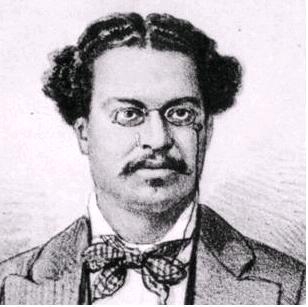|
Jacob Do Bandolim
Jacob do Bandolim born Jacob Pick Bittencourt (February 14, 1918 – August 13, 1969) was a Brazilian composer and musician. Born to a Brazilian-Jewish mother and a gentile father in Rio de Janeiro, his stage name means "Mandolin Jacob", after the instrument he played. A perfectionist, Jacob was able to achieve from his band ''Época de Ouro'' the highest levels of quality. Jacob hated the stereotype of the "dishevelled, drunk folk musician" and required commitment and impeccable dress from his musicians who, like himself, all held "day jobs." Jacob worked as a pharmacist, insurance salesman, street vendor, and finally notary public, to support himself while also working "full time" as a musician. In addition to his virtuoso playing, he is famous for his many choro compositions, more than 103 tunes,Choro: a social history of a Brazilian popular music. Tamara Elena Livingston-Isenhour and Thomas George Caracas Garcia. Indiana University Press, 2005, pp. 122 which range from ... [...More Info...] [...Related Items...] OR: [Wikipedia] [Google] [Baidu] |
Rio De Janeiro
Rio de Janeiro ( , , ; literally 'River of January'), or simply Rio, is the capital of the state of the same name, Brazil's third-most populous state, and the second-most populous city in Brazil, after São Paulo. Listed by the GaWC as a beta global city, Rio de Janeiro is the sixth-most populous city in the Americas. Part of the city has been designated as a World Heritage Site, named "Rio de Janeiro: Carioca Landscapes between the Mountain and the Sea", on 1 July 2012 as a Cultural Landscape. Founded in 1565 by the Portuguese, the city was initially the seat of the Captaincy of Rio de Janeiro, a domain of the Portuguese Empire. In 1763, it became the capital of the State of Brazil, a state of the Portuguese Empire. In 1808, when the Portuguese Royal Court moved to Brazil, Rio de Janeiro became the seat of the court of Queen Maria I of Portugal. She subsequently, under the leadership of her son the prince regent João VI of Portugal, raised Brazil to the dignity of a k ... [...More Info...] [...Related Items...] OR: [Wikipedia] [Google] [Baidu] |
Mandolin
A mandolin ( it, mandolino ; literally "small mandola") is a stringed musical instrument in the lute family and is generally plucked with a pick. It most commonly has four courses of doubled strings tuned in unison, thus giving a total of 8 strings, although five (10 strings) and six (12 strings) course versions also exist. There are of course different types of strings that can be used, metal strings are the main ones since they are the cheapest and easiest to make. The courses are typically tuned in an interval of perfect fifths, with the same tuning as a violin (G3, D4, A4, E5). Also, like the violin, it is the soprano member of a family that includes the mandola, octave mandolin, mandocello and mandobass. There are many styles of mandolin, but the three most common types are the ''Neapolitan'' or ''round-backed'' mandolin, the ''archtop'' mandolin and the ''flat-backed'' mandolin. The round-backed version has a deep bottom, constructed of strips of wood, glued togethe ... [...More Info...] [...Related Items...] OR: [Wikipedia] [Google] [Baidu] |
Choro
''Choro'' (, "cry" or "lament"), also popularly called ''chorinho'' ("little cry" or "little lament"), is an instrumental Brazilian popular music genre which originated in 19th century Rio de Janeiro. Despite its name, the music often has a fast and happy rhythm. It is characterized by virtuosity, improvisation and subtle modulations, and is full of syncopation and counterpoint. Choro is considered the first characteristically Brazilian genre of urban popular music. The serenaders who play choros are known as ''chorões''. Choro instruments Originally ''choro'' was played by a trio of flute, guitar and cavaquinho (a small chordophone with four strings). Other instruments commonly played in choro are the mandolin, clarinet, saxophone, trumpet and trombone. These melody instruments are backed by a rhythm section composed of 6-string guitar, 7-string guitar (playing bass lines) and light percussion, such as a pandeiro. The cavaquinho appears sometimes as a melody instrum ... [...More Info...] [...Related Items...] OR: [Wikipedia] [Google] [Baidu] |
History Of The Jews In Brazil
The history of the Jews in Brazil begins during the settlement of Europeans in the new world. Although only baptized Christians were subject to the Inquisition, Jews started settling in Brazil when the Inquisition reached Portugal, in the 16th century. They arrived in Brazil during the period of Dutch rule, setting up in Recife the first synagogue in the Americas, the Kahal Zur Israel Synagogue, as early as 1636. Most of those Jews were Sephardic Jews who had fled the Inquisition in Spain and Portugal to the religious freedom of the Netherlands. The Portuguese Inquisition expanded its scope of operations from Portugal to Portugal's colonial possessions, including Brazil, Cape Verde, and Goa, where it continued investigating and trying cases based on supposed breaches of orthodox Roman Catholicism until 1821. As a colony of Portugal, Brazil was affected by the nearly 300 years of repression of the Portuguese Inquisition, which began in 1536. In ''The Wealth of Nations'' Adam Sm ... [...More Info...] [...Related Items...] OR: [Wikipedia] [Google] [Baidu] |
Choro
''Choro'' (, "cry" or "lament"), also popularly called ''chorinho'' ("little cry" or "little lament"), is an instrumental Brazilian popular music genre which originated in 19th century Rio de Janeiro. Despite its name, the music often has a fast and happy rhythm. It is characterized by virtuosity, improvisation and subtle modulations, and is full of syncopation and counterpoint. Choro is considered the first characteristically Brazilian genre of urban popular music. The serenaders who play choros are known as ''chorões''. Choro instruments Originally ''choro'' was played by a trio of flute, guitar and cavaquinho (a small chordophone with four strings). Other instruments commonly played in choro are the mandolin, clarinet, saxophone, trumpet and trombone. These melody instruments are backed by a rhythm section composed of 6-string guitar, 7-string guitar (playing bass lines) and light percussion, such as a pandeiro. The cavaquinho appears sometimes as a melody instrum ... [...More Info...] [...Related Items...] OR: [Wikipedia] [Google] [Baidu] |
Carioca
Carioca ( or ) is a demonym used to refer to anything related to the City of Rio de Janeiro, in Brazil. The original meaning of the term is controversial, maybe from Tupi language "''kari' oka''", meaning "white house" as the whitewashed stone houses of European settlers or even the colonists themselves, by merging "''kara'iwa''" (white man) and "''oka''" (house). Currently, the more accepted origin in academia is the meaning derived from "''kariîó oka''", which comes from the indigenous tupi "house of carijó", which was Guaraní, a native tribe of Rio de Janeiro who lived in the vicinity of the Carioca River, between the neighborhoods of ''Glória'' and ''Flamengo''. Like other Brazilians, ''cariocas'' speak Portuguese. The ''carioca'' accent and sociolect (also simply called "''carioca''", see below) are one of the most widely recognized in Brazil, in part because TV Globo, the second-largest television network in the world, is headquartered in Rio de Janeiro. Thus, many ... [...More Info...] [...Related Items...] OR: [Wikipedia] [Google] [Baidu] |
Bebop
Bebop or bop is a style of jazz developed in the early-to-mid-1940s in the United States. The style features compositions characterized by a fast tempo, complex chord progressions with rapid chord changes and numerous changes of key, instrumental virtuosity, and improvisation based on a combination of harmonic structure, the use of scales and occasional references to the melody. Bebop developed as the younger generation of jazz musicians expanded the creative possibilities of jazz beyond the popular, dance-oriented swing music-style with a new "musician's music" that was not as danceable and demanded close listening.Lott, Eric. Double V, Double-Time: Bebop's Politics of Style. Callaloo, No. 36 (Summer, 1988), pp. 597–605 As bebop was not intended for dancing, it enabled the musicians to play at faster tempos. Bebop musicians explored advanced harmonies, complex syncopation, altered chords, extended chords, chord substitutions, asymmetrical phrasing, and intricate melodi ... [...More Info...] [...Related Items...] OR: [Wikipedia] [Google] [Baidu] |
Pixinguinha
Alfredo da Rocha Viana Filho, known as Pixinguinha (; April 23, 1897February 17, 1973) was a Brazilian composer, arranger, flautist and saxophonist born in Rio de Janeiro. Pixinguinha is considered one of the greatest Brazilian composers of popular music, particularly within the genre of music known as choro. By integrating the music of the older ''choro'' composers of the 19th century with contemporary jazz-like harmonies, Afro-Brazilian rhythms, and sophisticated arrangements, he introduced ''choro'' to a new audience and helped to popularize it as a uniquely Brazilian genre. He was also one of the first Brazilian musicians and composers to take advantage of the new professional opportunities offered to musicians by the new technologies of radio broadcasting and studio recording. Pixinguinha composed dozens of ''choros'', including some of the best-known works in the genre such as "Carinhoso", "Glória", "Lamento" and "Um a Zero". Early life and early career Pixinguinha was the ... [...More Info...] [...Related Items...] OR: [Wikipedia] [Google] [Baidu] |
Sérgio Bittencourt
Sergius is a male given name of Ancient Roman origin after the name of the Latin ''gens'' Sergia or Sergii of regal and republican ages. It is a common Christian name, in honor of Saint Sergius, or in Russia, of Saint Sergius of Radonezh, and has been the name of four popes. It has given rise to numerous variants, present today mainly in the Romance (Serge, Sergio, Sergi) and Slavic languages (Serhii, Sergey, Serguei). It is not common in English, although the Anglo-French name Sergeant is possibly related to it. Etymology The name originates from the Roman ''nomen'' (patrician family name) ''Sergius'', after the name of the Roman ''gens'' of Latin origins Sergia or Sergii from Alba Longa, Old Latium, counted by Theodor Mommsen as one of the oldest Roman families, one of the original 100 ''gentes originarie''. It has been speculated to derive from a more ancient Etruscan name but the etymology of the nomen Sergius is problematic. Chase hesitantly suggests a connection with t ... [...More Info...] [...Related Items...] OR: [Wikipedia] [Google] [Baidu] |
1918 Births
This year is noted for the end of the World War I, First World War, on the eleventh hour of the eleventh day of the eleventh month, as well as for the Spanish flu pandemic that killed 50–100 million people worldwide. Events Below, the events of World War I have the "WWI" prefix. January * January – 1918 flu pandemic: The "Spanish flu" (influenza) is first observed in Haskell County, Kansas. * January 4 – The Finnish Declaration of Independence is recognized by Russian Soviet Federative Socialist Republic, Soviet Russia, Sweden, German Empire, Germany and France. * January 9 – Battle of Bear Valley: U.S. troops engage Yaqui people, Yaqui Native American warriors in a minor skirmish in Arizona, and one of the last battles of the American Indian Wars between the United States and Native Americans. * January 15 ** The keel of is laid in Britain, the first purpose-designed aircraft carrier to be laid down. ** The Red Army (The Workers and Peasants Red Army) ... [...More Info...] [...Related Items...] OR: [Wikipedia] [Google] [Baidu] |
1969 Deaths
This year is notable for Apollo 11's first landing on the moon. Events January * January 4 – The Government of Spain hands over Ifni to Morocco. * January 5 **Ariana Afghan Airlines Flight 701 crashes into a house on its approach to London's Gatwick Airport, killing 50 of the 62 people on board and two of the home's occupants. * January 14 – An explosion aboard the aircraft carrier USS ''Enterprise'' near Hawaii kills 27 and injures 314. * January 19 – End of the siege of the University of Tokyo, marking the beginning of the end for the 1968–69 Japanese university protests. * January 20 – Richard Nixon is sworn in as the 37th President of the United States. * January 22 – An assassination attempt is carried out on Soviet leader Leonid Brezhnev by deserter Viktor Ilyin. One person is killed, several are injured. Brezhnev escaped unharmed. * January 27 ** Fourteen men, 9 of them Jews, are executed in Baghdad for spying for Israel. ... [...More Info...] [...Related Items...] OR: [Wikipedia] [Google] [Baidu] |
Brazilian Mandolinists
Brazilian commonly refers to: * Something of, from or relating to Brazil * Brazilian Portuguese, the dialect of the Portuguese language used mostly in Brazil * Brazilians, the people (citizens) of Brazil, or of Brazilian descent Brazilian may also refer to: Sports * Brazilian football, see football in Brazil * Brazilian jiu-jitsu, a martial art and combat sport system *''The Brazilians'', a nickname for South African football association club Mamelodi Sundowns F.C. due to their soccer kits which resembles that of the Brazilian national team Other uses * Brazilian waxing, a style of Bikini waxing * Brazilian culture, describing the Culture of Brazil * "The Brazilian "The Brazilian" is an instrumental piece by the English band Genesis that concludes their 1986 album '' Invisible Touch''. The song features experimental sounds and effects. The band wrote two instrumental pieces for the album, this and "Do the N ...", a 1986 instrumental by Genesis * Brazilian barbecue, known a ... [...More Info...] [...Related Items...] OR: [Wikipedia] [Google] [Baidu] |






.jpg)

.jpg)